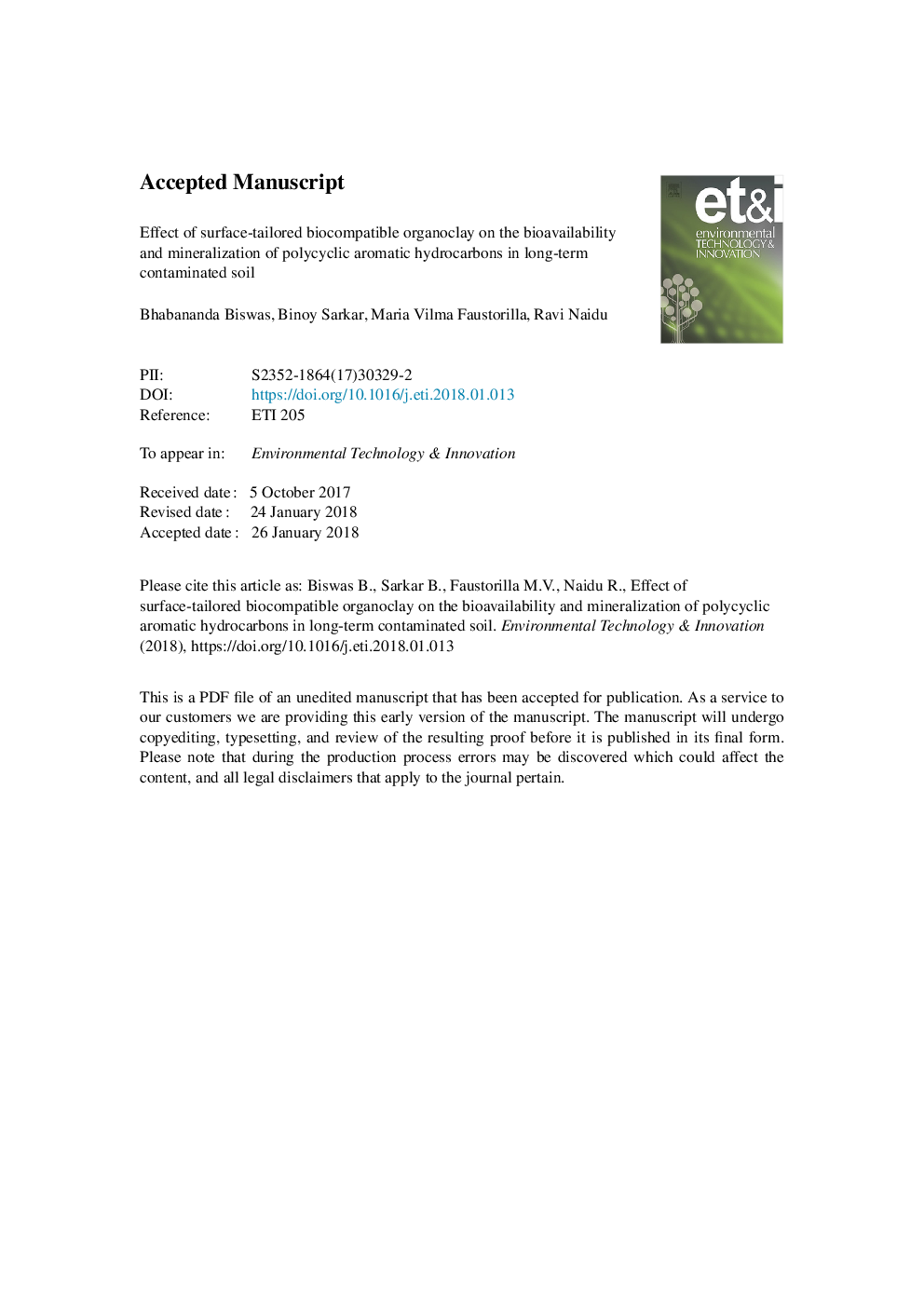| Article ID | Journal | Published Year | Pages | File Type |
|---|---|---|---|---|
| 8857986 | Environmental Technology & Innovation | 2018 | 30 Pages |
Abstract
A surface-tailored organoclay (palmitic acid-tailored Arquad®-modified bentonite, ABP) was prepared for the selective adsorption of cadmium in the presence of polycyclic aromatic hydrocarbon (PAH) contaminants in a long-term contaminated soil. The efficiency of the organoclay (ABP) and the effect of its parent clays were assessed concerning the microbial viability, metal immobilization and PAHs bioavailability and biodegradation in a long-term (70 days) soil incubation study. The surface-tailored organoclay (ABP) increased the bacterial growth by 5-7 fold than the control and parent clay-amended soil. With an increased effect of aging, the ABP immobilized more Cd from the soil solution (2-folds higher than the control soil), and simultaneously increased the bioavailability (1.6-1.8 fold) of low molecular weight PAHs related to the control soil and the parent clay-amended soils. The surface-tailored organoclay (ABP) could also increase the mineralization of 14C-labeled phenanthrene by ca. 1.3-fold relative to the control experiment under a 25-days of incubation.
Related Topics
Life Sciences
Environmental Science
Environmental Chemistry
Authors
Bhabananda Biswas, Binoy Sarkar, Maria Vilma Faustorilla, Ravi Naidu,
